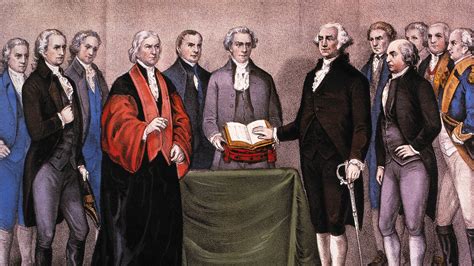George Washington, the first president of the United States, was a man of great vision and determination. Born in 1732, he grew up to become a successful planter and military leader. In 1775, he was appointed commander-in-chief of the Continental Army, and he led the American colonies to victory in the Revolutionary War. After the war, he was elected president of the United States, and he served two terms.

During his presidency, Washington helped to establish the new nation’s government and economy. He also set a number of important precedents, such as the tradition of a two-party system and the separation of church and state.
Washington died in 1799, but his legacy continues to inspire Americans today. He is considered one of the most important figures in American history, and his words and deeds continue to guide the nation.
In this interview, we will explore Washington’s life and career, and we will learn from his wisdom.
Early Life and Career
George Washington: Thank you for taking the time to interview me. I am honored to share my story with you.
Let’s start with your early life. You were born in 1732 in Virginia. What was your childhood like?
GW: I was born into a wealthy family of planters. My father died when I was young, and I was raised by my mother and my older brothers. I had a happy childhood, and I enjoyed spending time outdoors and exploring the woods around my home.
In 1752, you became a surveyor. What did you think of that work?
GW: I enjoyed surveying. It was a challenging and rewarding job. I learned a lot about the land and the people of Virginia.
In 1754, you were appointed as a lieutenant colonel in the Virginia militia. What was your experience in the French and Indian War?
GW: The French and Indian War was a difficult experience, but it taught me a lot about leadership and warfare. I learned the importance of discipline, teamwork, and perseverance.
The Revolutionary War
In 1775, you were appointed commander-in-chief of the Continental Army. What was your strategy for winning the war?
GW: My strategy was to avoid open battle with the British army. I knew that the British were better equipped and trained than we were. Instead, I used guerrilla warfare to harass and weaken the British. I also relied on the support of the American people.
The Revolutionary War was a long and difficult struggle. What kept you going?
GW: I was motivated by my belief in the cause of American independence. I believed that the American people had the right to govern themselves.
In 1781, you defeated the British army at Yorktown. What was the significance of this victory?
GW: The victory at Yorktown was a turning point in the war. It convinced the British that they could not win the war, and it led to the signing of the Treaty of Paris in 1783.
The Presidency
In 1789, you were elected president of the United States. What were your goals for the new nation?
GW: My goals for the new nation were to establish a strong and stable government, to promote economic growth, and to protect the rights of the American people.
You served two terms as president. What were some of your accomplishments?
GW: During my presidency, I helped to establish the new nation’s government and economy. I also set a number of important precedents, such as the tradition of a two-party system and the separation of church and state.
You are considered one of the most important figures in American history. What is your legacy?
GW: My legacy is one of leadership, patriotism, and service. I am proud to have served my country, and I am grateful for the opportunity to have helped to shape the destiny of the United States.
Wisdom for Today
Mr. President, what advice would you give to today’s leaders?
GW: I would advise today’s leaders to be honest, courageous, and compassionate. I would also advise them to listen to the people they serve and to always put the interests of the country first.
What is your message to the American people?
GW: My message to the American people is to be proud of your country and to always work to make it better. The future of the United States is in your hands.
Conclusion
George Washington was a man of great vision and determination. He led the American colonies to victory in the Revolutionary War, and he helped to establish the new nation’s government and economy. He is considered one of the most important figures in American history, and his words and deeds continue to guide the nation today.
In this interview, we have explored Washington’s life and career, and we have learned from his wisdom. We can all learn from his example of leadership, patriotism, and service.
